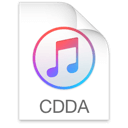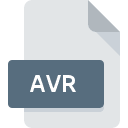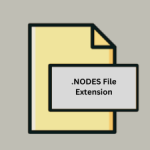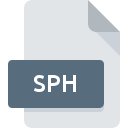.CDDA File Extension

CD Digital Audio File
| Developer | N/A |
| Popularity | |
| Category | Audio Files |
| Format | .CDDA |
| Cross Platform | Update Soon |
What is an CDDA file?
The .CDDA file extension is predominantly associated with audio data extracted directly from a CD (Compact Disc Digital Audio). It encapsulates raw, uncompressed audio files in a specific format that maintains the original quality of the audio tracks.
More Information.
.CDDA files were intended for playback on CD players and audio editing software. They served as the raw, unprocessed data from CDs, allowing users to archive and manipulate audio tracks without losing fidelity.
Origin Of This File.
The .CDDA file type emerged alongside the proliferation of CDs in the early 1980s. Its inception was tied to the need to digitize audio data from CDs without compromising the original quality, making it a popular format for preserving audio tracks.
File Structure Technical Specification.
.CDDA files contain PCM (Pulse-Code Modulation) audio data, preserving the audio in its uncompressed form. Typically, these files lack metadata and are structured in a raw format, directly mirroring the data retrieved from the CD.
How to Convert the File?
Windows
- Using software: Install and launch a dedicated audio conversion tool like “Format Factory” or “Fre:ac” on your Windows system.
- Import .CDDA files: Use the software’s interface to import the .CDDA files you wish to convert.
- Select output format: Choose the desired output format (e.g., WAV, FLAC) for the conversion.
- Conversion process: Initiate the conversion process and specify the output directory for the converted files.
Linux
- Using FFmpeg: Open a terminal window and use FFmpeg commands. First, install FFmpeg if not already installed using package managers like apt or yum.
- Convert .CDDA files: Use the FFmpeg command-line interface, specifying input and output file paths along with desired codec options. For instance:
ffmpeg -i input.cdda output.wav. - Execute the command: Execute the command in the terminal to convert the .CDDA file to the desired format.
Mac
- Utilizing iTunes or Finder: Import the .CDDA files into iTunes or Finder on your Mac system.
- Select files for conversion: Highlight the files you want to convert to another format (e.g., AIFF, MP3).
- Choose output format: In iTunes, go to File > Convert > Create [format] Version. In Finder, right-click and choose “Convert” then select the desired format.
- Conversion completion: Wait for the conversion process to finish; the converted files will appear in the selected output format.
Android
- Using a file conversion app: Download and install a file conversion app from the Google Play Store, such as “Media Converter” or “Audio Converter.”
- Import .CDDA files: Open the app and import the .CDDA files you wish to convert.
- Select output format: Choose the desired output format (e.g., MP3, FLAC) from the available options.
- Initiate conversion: Start the conversion process and wait for the app to generate the converted files.
iOS
- Using a conversion app: Install a conversion app from the App Store, such as “File Converter” or “Audio Converter.”
- Import .CDDA files: Launch the app and import the .CDDA files you want to convert.
- Choose output format: Select the desired output format (e.g., AAC, WAV) from the app’s options.
- Start conversion: Begin the conversion process and allow the app to create the converted files.
Advantages And Disadvantages.
Advantages:
- Maintains original audio quality.
- Ideal for archiving and preserving CD audio.
- Compatible with various audio editing software.
Disadvantages:
- Large file sizes due to uncompressed nature.
- Lack of metadata can limit organizational capabilities.
- Not as widely supported as compressed audio formats.
How to Open CDDA?
Open In Windows
- VLC Media Player: Download and install VLC Media Player. Open VLC, then navigate to “Media” > “Open Disc.” Select the CD/DVD option and click “Play” to access the .CDDA files directly from the CD.
- Windows Media Player: Launch Windows Media Player and insert the CD containing the .CDDA files. The player should automatically recognize and play the audio tracks from the CD.
Open In Linux
- Audacity: Install Audacity on your Linux system. Launch Audacity, then select “File” > “Import” > “Audio.” Navigate to the CD drive and select the .CDDA files directly from the CD for playback or editing.
- VLC Media Player: Similar to Windows, VLC for Linux allows access to .CDDA files from CDs. Open VLC, go to “Media” > “Open Disc,” choose the CD/DVD option, and click “Play” to access the audio tracks.
Open In MAC
- iTunes: Insert the CD containing .CDDA files into your Mac. iTunes should automatically recognize the CD and display the audio tracks. You can play the tracks directly from iTunes or import them into your library.
- Audacity: If you prefer editing or managing .CDDA files, install Audacity on your Mac. Launch Audacity, then navigate to “File” > “Import” > “Audio.” Choose the .CDDA files directly from the CD for playback or editing.
Open In Android
- Media Player Apps: Use media player apps like VLC for Android, Poweramp, or PlayerXtreme to play .CDDA files. Simply open the app, navigate to the file location (if stored locally), and play the audio tracks.
- File Conversion Apps: Some file conversion apps on Android might also offer playback capabilities for .CDDA files, allowing you to listen to the audio tracks directly within the app.
Open In IOS
- Media Player Apps: Install media player apps like VLC for iOS, VOX, or nPlayer from the App Store. These apps may provide the functionality to play .CDDA files directly on your iOS device.
- File Management Apps: Utilize file management apps that support audio playback. Import the .CDDA files into these apps to listen to the audio tracks on your iOS device.
Open in Others
For other operating systems, accessing .CDDA files might involve using compatible media player software capable of reading audio data from CDs or employing specialized audio editing software with CD import functionalities.













